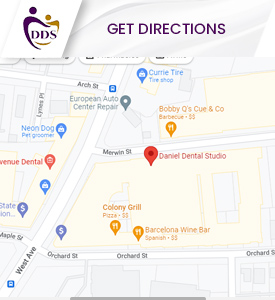Root Canal Treatment Specialist in Norwalk, CT
At Daniel Dental Studio, our highly skilled dental professionals are specialized in diagnosing and treating tooth pain and performing root canal treatment. When your tooth shows signs of infection or substantial pulpal nerve damage, you may consider a root canal. Meet Dr. Karima Daniel at our dental practice. She is a hard working and experienced dentist who believes in providing exceptional services to the patients. Contact us for more information, or request an appointment online today! We are conveniently located at 515 West Ave Suite R, Norwalk CT, 06850.




Additional Services You May Need
▸ Dental Checkup and Cleaning
▸ Dental Crowns and Bridges
▸ Dental Fillings
▸ Dentures
▸ Dental Implants
▸ Pediatric Dentistry
▸ Root Canal Treatment
▸ Tooth Extractions
▸ Clear Aligners
▸ Cosmetic Dentistry
▸ Dental Exams
▸ Dental Sealants
▸ Family Dentistry
▸ Fluoride Treatment
▸ Invisalign
▸ Scaling & Root Planing
▸ Wisdom Teeth Removal



